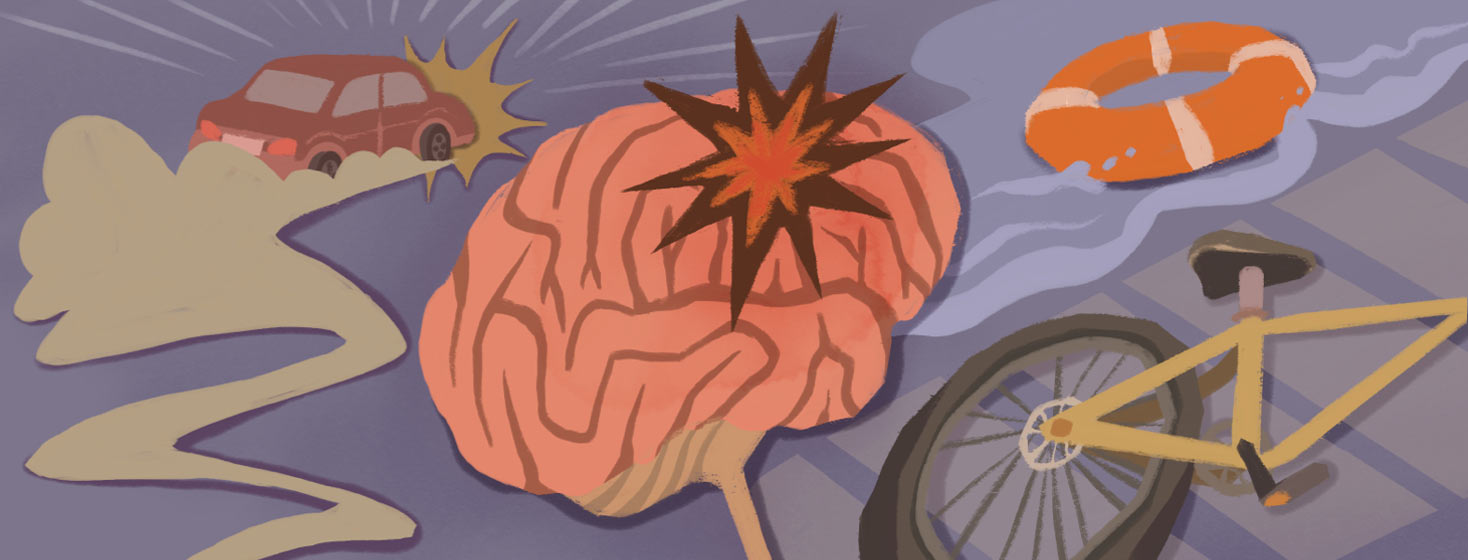Can You Die From Epileptic Seizures?
Can you die from epileptic seizures? At first, I didn't want to know the answer, but my very first seizure was an indication of how serious they can be.
My first seizure
One night, my college roommate heard me scream and rushed in to find me in bed convulsing with a lot of blood on my pillow. I had likely bitten my tongue. Spasms of the muscles can force air out of the lungs, which caused me to cry and moan, even though I wasn't conscious.1
My roommate was familiar with seizures and knew to immediately roll me onto my side because people can suffocate from fluids blocking their airways. Intense muscle spasms can also impair breathing, as can apnea. That's when a seizure causes a person to have pauses in breathing, which reduces oxygen in the bloodstream.
Sudden unexpected death in epilepsy (SUDEP)
These factors can all cause sudden unexpected death in epilepsy (SUDEP), which refers to incidents in people with epilepsy that are not caused by accidents or other known causes. Sudden death can also result from more than one cause or a combination of breathing difficulty and a heart arrhythmia.2
I was extremely lucky to have my roommate by my side that night, and I was lucky that my next tonic-clonic a few weeks later didn't impact my breathing. But SUDEP isn't the only cause of life-threatening seizures.
Injuries from seizures
After those two tonic-clonic seizures in college, I went through a year of zoning-out episodes, but by the time I graduated college, my seizures appeared to have disappeared from my life. About 3 years later though, my seizures came back with a vengeance, and like many people with uncontrollable seizures, my body took a beating.
I never Googled "can you die from seizures," because I had already figured out that if an injury was bad enough, that alone could do it. But I was living in denial.
Ignoring the potentially fatal impact of epilepsy
My friend reminded me of the day I woke up with an iron imprint on my face from falling into the hot metal while ironing. I don't need a reminder of the sharp knife that sliced my arm open while cutting vegetables – the scar I still have says enough. It sits dangerously close to a major artery, the ulnar artery.
The burns, cuts, bruises, and other dangerous incidents were sometimes brushed under the rug because I was determined to live life on my terms, which meant focusing on my career and playing sports.
My accidents, as well as drowning, falls, car crashes, and bicycle accidents are the most common types of seizure-related accidents that people with epilepsy die from. They can result in traumatic brain injuries or other fatal injuries. People with epilepsy have also died by suicide.3
A trigger for my seizures was exercise and I trained for marathons and rode my bike to work because I couldn't legally drive. Sports put me at risk but I wasn't about to let epilepsy limit the one thing that reduced my stress – exercise.
Status epilepticus
There's another contributor to fatal seizures that I was at risk for one day at work. It's called status epilepticus, which is a seizure that lasts longer than 5 minutes, or is when a person has more than 1 seizure within a 5 minute period, without returning to a normal level of consciousness between episodes.
I had a few seizures back to back to back that day, and thankfully I recovered without going to the hospital. It didn't cross my mind because I was too out of it. Some doctors prescribe an emergency medication for patients to use in the event a seizure is lasting too long. I didn't have one at the time but I do now.
Status epilepticus is a medical emergency that may lead to permanent brain damage or death, which is why it's so important for someone to time the seizure if he or she witnesses it.4
How can you die from seizure?
Out of all these risk factors, SUDEP is the No. 1 cause of death in people with uncontrolled seizures, causing 8% to 17% of all epilepsy deaths. The death rate is highest for patients whose seizures do not respond to treatment.5
"We have done too little to prevent epilepsy-related deaths," said renowned epileptologist Orrin Devinsky and his colleagues in a 2015 Neurology journal article called "Recognizing and preventing epilepsy-related mortality: A call for action." Devinsky and his colleagues called for a systematic classification of deaths directly due to epilepsy, writing that an accurate estimate of epilepsy-related deaths is crucial to support the development of preventions. "Everyone with epilepsy and everyone who treats people with epilepsy need to know that controlling seizures will save lives," they wrote.3
Addressing the danger of my seizures
I believe that to be true. My most dangerous, life-threatening seizures occurred while I was just starting my first medication and trying to increase the dosage while also balancing the side effects of moodiness. But no medication could completely control them and I was aware by then that everyday I was at risk for a seizure-related accident. That led to my decision for brain surgery.
Now today, 7 years since surgery, I still take medication. My epileptologist wants to avoid break-through seizures at all cost.

Join the conversation